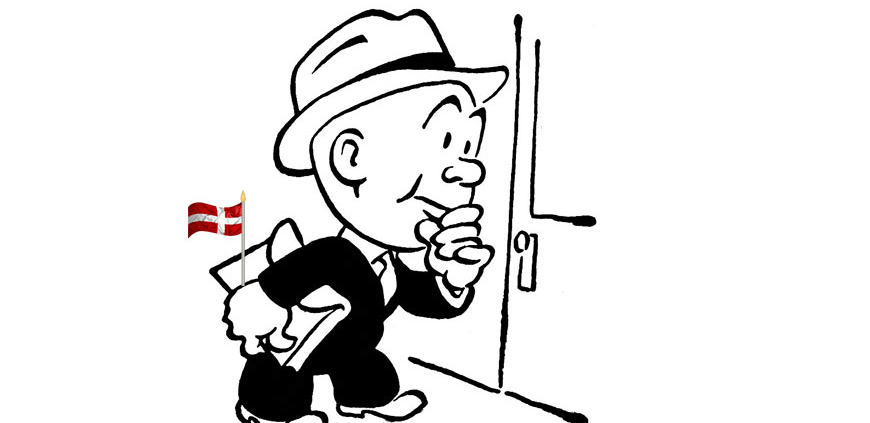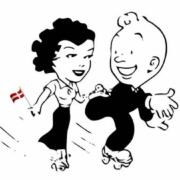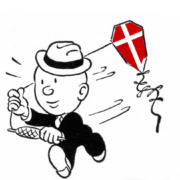Why job titles aren’t that important in Denmark
When I do How to Live in Denmark presentations, I generally ask for just a few simple items – a screen, a remote, and a glass of water.
On a recent gig, I was provided with everything except the water. And since I had met several of the company’s employees when I arrived – handshakes with Mette, Søren, Nikolaj – I asked one of them to kindly get me a glass of water. I asked Nikolaj.
Nikolaj smiled, walked off, and brought me back a glass of water.
It was only after the presentation was finished and I was home making connections on LinkedIn that I found out that Nikolaj was Senior Vice President for Europe, with more than 650 people working for him and a salary that must have been in the 3 million-kroner-a-year zone.
But Nikolaj had never mentioned his title to me, because that’s just not done in Denmark.
Passion for equality
One of the most important words in the Danish language is ligestilling – equality. The belief that all (Danish) people are basically equal permeates every relationship and every interaction.
(It’s one of the reasons customer service tends to be so poor in Denmark – there’s no tradition of anyone serving anyone else.)
You could dip deep into Danish history to find the reason for this passion for equality, which probably has something to do with the need for farmers to co-operate in order to make it through the dark Scandinavian winter.
Fancy job titles do not fit into that passion for equality. They suggest you think you’re better than someone else. Which you might actually be, if you’ve worked your way to the top of your field, but that admission is slightly embarrassing.
No titles on office doors
If you do have an impressive job title, it’s considered bad taste to show it off.
Office doors in Denmark, for example, usually have just the name of the person inside, not their title. When you introduce yourself, whether to one person or an audience of 500, you give just your name, preferably just your first name. (Like Nikolaj did.)
And it’s considered laughable to strut about in a way that shows everyone you’re the boss.
In fact, when you enter a room of Danish businesspeople, it is almost impossible to tell who the boss is. Everyone’s dressed the same, everyone acts pretty much the same, and nobody shows any particular deference to the boss.
This can be a problem when you’re a job hunter or salesperson and have to figure out who in the room has the power to make a decision.
Confusing for foreigners
To Danes, titles are pompous. Even doctors and professors use their first names in a spoken context or in casual written communication.
But the lack of titles can be confusing to foreigners who do business with Danes. Particularly in hierarchical cultures, many people want to deal with a Dane of a similar status as their own.
When highly-educated Danes sign an email with just their first names – as is considered good, equal manners in Denmark – people from hierarchical societies often assume they’re talking to a secretary or an intern.
That can get in the way of a good business deal.
I recently read a Danish guide to doing business in India. The writer suggested that Danish people not just use their job titles, but actually create a job title that sounds as impressive as the Indian they want to do business with.
Don’t understand the competitive world
For a Dane, that’s a little bit like putting on a costume at a party.
Titles seem artificial and make them feel slightly uncomfortable. I do an event that includes tips for Danes working with Americans, and one of the most frequent complaints I hear is how
Americans love their titles and how tiresome and pretentious that is.
The truth is, Danes don’t always understand how competitive the world outside Denmark can be.
In the USA, India, or China, the competition to get into the “best” schools is brutal and begins in childhood. A “good” primary school may be necessary in order to access a “good” secondary school, which can set you up for a “good” university.
If you outperform everyone else at all three, you might get a chance at a “good” job at a “good” company, and then work your way up to a fancy title.
That fancy title means your hard work has paid off. It means you’ve “won.”
Having grown up in a welfare state with an extensive safety net, it can be hard for Danes to comprehend how important it is to “win”, and how far and fast you can fall if you don’t.
Creating a network more important than showing off
In Denmark, it’s much less common to obsess about the “top” primary schools or “top” secondary schools. There are only a few major universities, each of which is “top” in its own subject.
And the focus throughout the Danish educational system is on group work, not individual excellence. Successful students focus on building the network they’ll need to get good student jobs and internships in their fields – not on antagonizing people by showing they’re the smartest one around.
(Danes who have the “smartest one around” type of personality often end up leaving Denmark; I know of several who have successful businesses in the USA.)
Chat about teams, projects, customers, goals
Anyway, if they remain in the local business world, Danes don’t start a conversation with a potential new contact by asking about titles. They chat about teams, projects, customers, goals, maybe past companies they’ve worked for. If a title is mentioned it all, it’s mentioned at the end of the conversation.
It’s even considered a bit crass to research someone’s title before you meet them, although with LinkedIn that’s increasingly easy to do.
Knowing someone’s title suggests you care about hierarchy and might not have a full commitment to equality.
And to be fair, the flat management structure at Danish companies means someone’s title doesn’t always reflect how much power they have, or their ability to hire or sign on the dotted line. Or whether or not they’ll be asked to fetch a visiting American a cold glass of water.
[icon name=”facebook-square” class=”fa-3x”] [icon name=”twitter-square” class=”fa-3x”][icon name=”instagram” class=”fa-3x”]
Buy Kay’s books about Denmark on Amazon, Saxo, Google Books, Apple Books, Barnes & Noble Nook, or via our webshop.
Image mashup copyright Kay Xander Mellish [current_year]
Read more:
Decoding your Danish pay slip and understanding your Danish taxes
How to handle a Danish business meeting
What to wear to work in Denmark: Quiet colors, quality cut and fabric
Your first day at work in Denmark: Handshakes, passwords, and several people named Mette
Trailing spouses and working in Denmark
Motivating Danish employers: Tips for foreign managers
Networking in Denmark: 5 useful tips for making Danish business contacts
Secrets of socializing with your Danish colleagues
The Danish art of taking time off
Your free daily banana and five weeks off: Job benefits in Denmark
The Danish job interview
Job search in Denmark: Your Danish cover letter plus LinkedIn plus two magic words
Job hunting in Denmark: Putting together your Danish CV
Fine-tuning your approach to the Danish job market
Finding a job in Denmark: Some tips from my experience
Is joining a union a waste of money? And what is the difference between a union and an A-kasse?
Will I ever be promoted? Plus, how to leverage your annual review
Taking sick days in Denmark, plus how to deal with stress










Looks like a have to read and learn a lot. At the moment im not sure how to search for a job in dansk. My wife comes from “Schleswig Holstein” years ago we have to move to the south….we like to go back to the north. Its difficult if you are specialised in IT (Storage) north of hamburg. There is no big IT. Have to read, thanks for your hints and tips.
Very insightful!
I read many of your articles and now .I have myself lived in Europe for around 3 years(in Amsterdam and Munich) and I totally agree with you(though there might be slight differences in the Danish,Dutch and German cultures) as you rightly pointed out in one of your articles but it seems to me that Europe is almost similar in many ways.Big fan of yours as never read such elaborate and true descriptions.Hope you see this message and are able to acknowledge my compliment.Will definitely buy the book as soon as I get a job.My best wishes to you.
Akshay
Thanks Akshay! I’m glad I could be helpful.